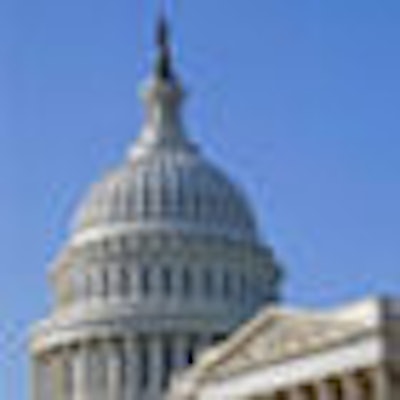
The first draft of healthcare reform legislation by the U.S. Senate moves toward assuring dental benefits for all U.S. children. It would also fund pilot programs for midlevel dental providers, such as the controversial new dental therapist programs in Alaska and Minnesota.
The bill, offered by the Senate Committee on Health, Education, Labor, and Pensions (HELP) under Sen. Edward Kennedy (D-MA), leads a series of three competing proposals expected out of Congress this summer. The Senate Committee on Finance plans to release its version next week, followed by a joint version from the corresponding committees of the House of Representatives in mid-July.
All these drafts were written under Democratic leadership whose majority gives them a firm grip; Republicans leaders have complained that the bills don't reflect their input.
In addition to the pediatric and midlevel provider provisions, the HELP bill would also do the following:
- Launch an oral disease prevention campaign
- Mandate more data collection on oral health epidemiology
- Boost programs to provide sealants to school children
- Increase support for dental schools
- Launch a study on caries management systems
The bill got a mixed reception from oral health advocates. "We have set the stage that any plan will have pediatric oral benefits," said Burton Edelstein, D.D.S., M.P.H., a Columbia University professor and founding chair of the Children's Dental Health Project. "We are so happy, because trying to get these provisions in later would be hard."
Others haven't yet had time to work out all the implications of the 615-page document. "We are still reviewing the bill with the goal of providing constructive comments back to the HELP Committee," said Bill Prentice, director of the ADA's Washington, DC, office.
He expected the Senate Committee on Finance to address changes in Medicaid that could include a key policy goal of the ADA: making dental benefits under Medicaid mandatory for adults. Currently, states can choose whether to provide them. Since the cost is split between the state and federal governments, many states struggling to balance their budgets this year have proposed to cut adult benefits.
Meanwhile, the American Dental Education Association (ADEA) is focused on an expansion of Title VII of the Public Health Service Act, which provides money for dental education programs. "Title VII reauthorization is in, but not exactly as we suggested," read one brief ADEA memo.
Many of the oral healthcare provisions in the HELP draft are indirect. For example, while emphasizing that the Senate wants everyone to be able to have health insurance equivalent to that enjoyed by federal employees, the bill doesn't explain how it would provide these benefits to all those who can't currently afford it.
The HELP committee at the last minute pulled out a provision that would have set up a public insurance program to compete with private companies, according to news reports.
The bill would expand Medicaid to 150% of the poverty level, and it would bar insurance companies from denying policies or charging more on the basis of pre-existing conditions. It would also let children stay on their parents' policies until age 26.
In addition, the bill sets up a council to study what benefits should be included in health insurance programs. Among the benefits the council would study are "pediatric services, including oral and vision care."
This is a roundabout way of stipulating that the Senate wants oral healthcare to be available for all children, Dr. Edelstein said. Mandating it directly would be a violation of states' rights, he noted. He added that he'd pushed to get adult benefits mentioned as well. "We couldn't get any traction," he said.
The bill would also set up 15 demonstration projects to explore alternative models for dental care providers. These could be used to test various proposals, such as the community dental health coordinator advanced by the ADA, the American Dental Hygienists' Association's advanced dental hygiene practitioner, and the dental therapists already approved in Alaska and Minnesota. Details would be left to states, since they, rather than the federal government, have the authority to license health practitioners, Dr. Edelstein said.
"The chief message of the first bill is that Congress is not framing this as healthcare reform but as health reform," he said. "That's why prevention and surveillance are included. Congress is trying to reduce the percentage of gross domestic product that goes to healthcare."
Copyright © 2009 DrBicuspid.com



















